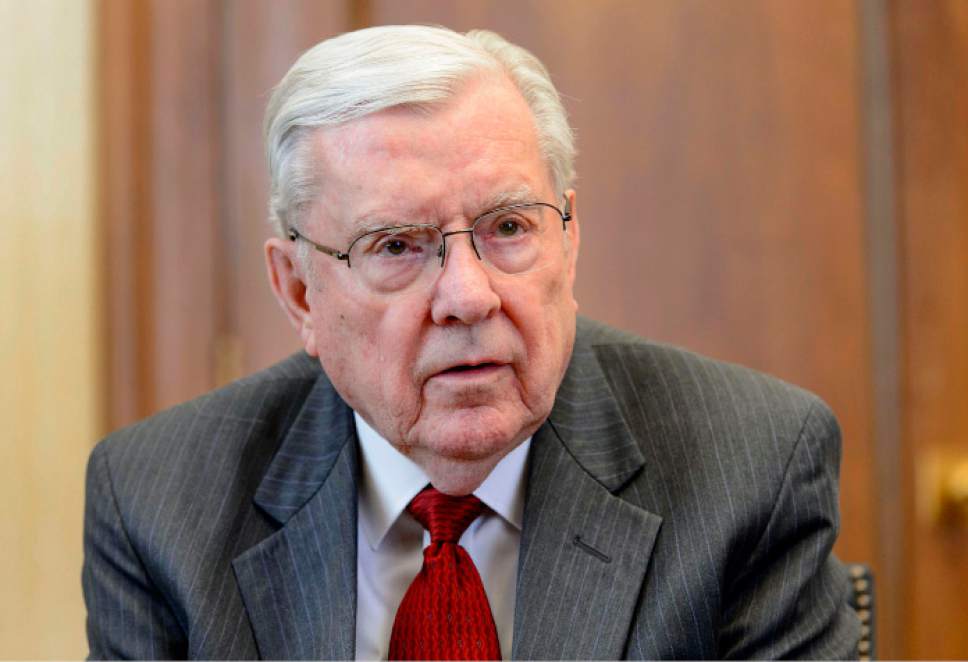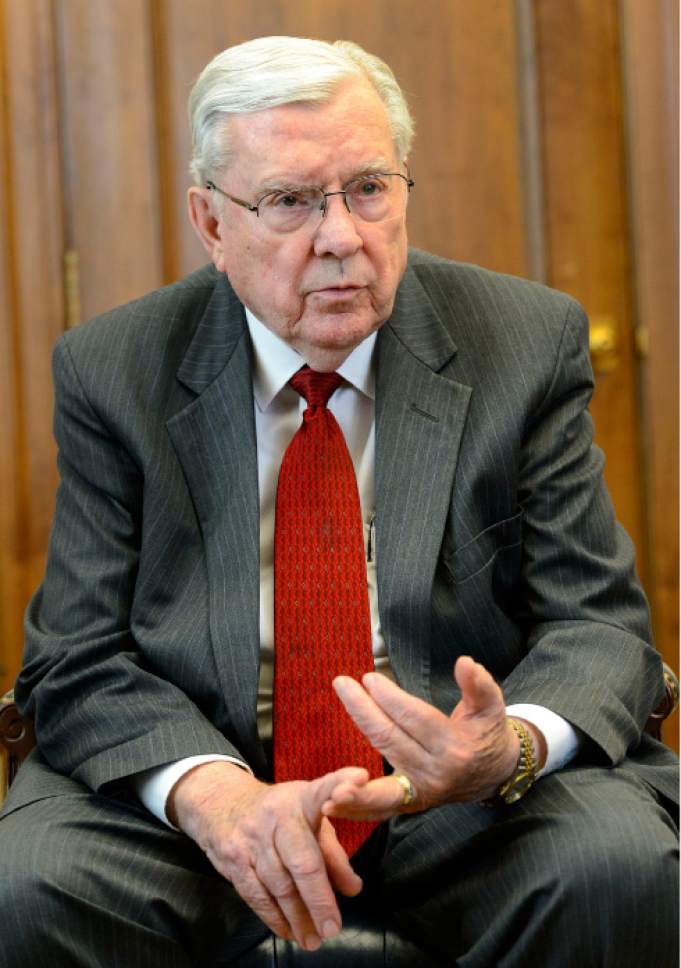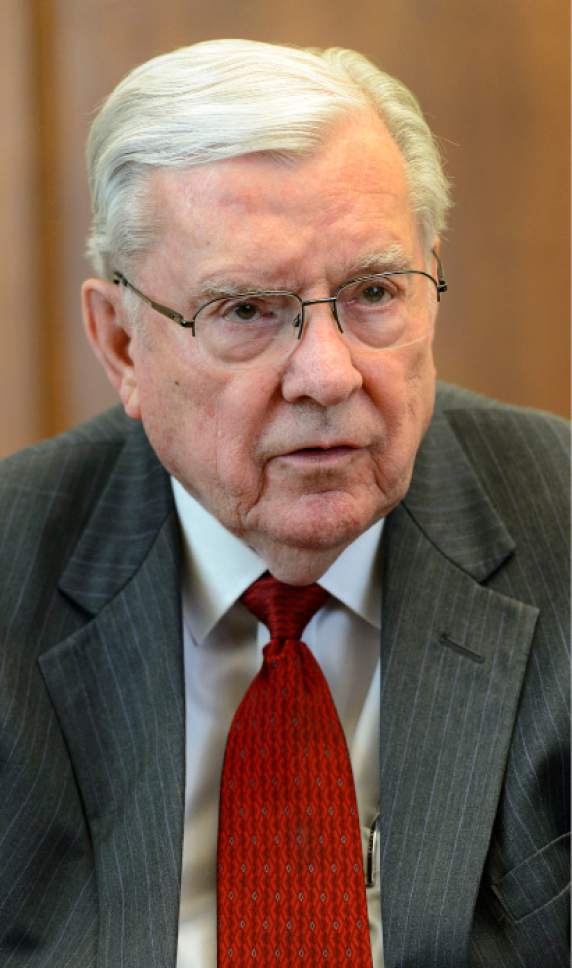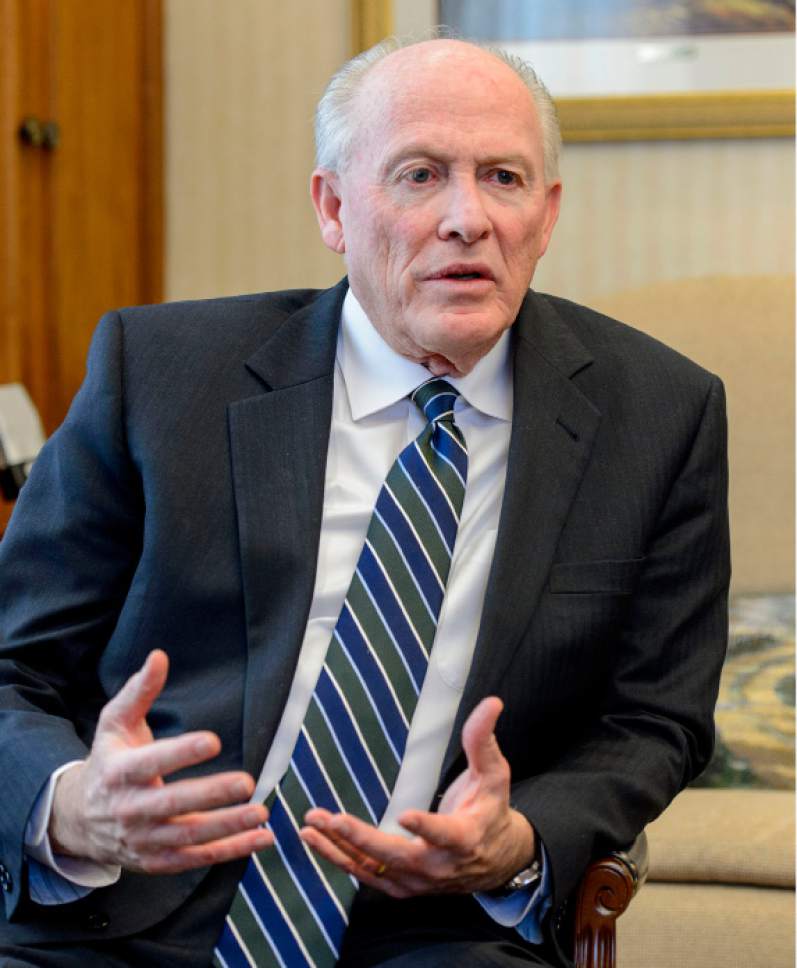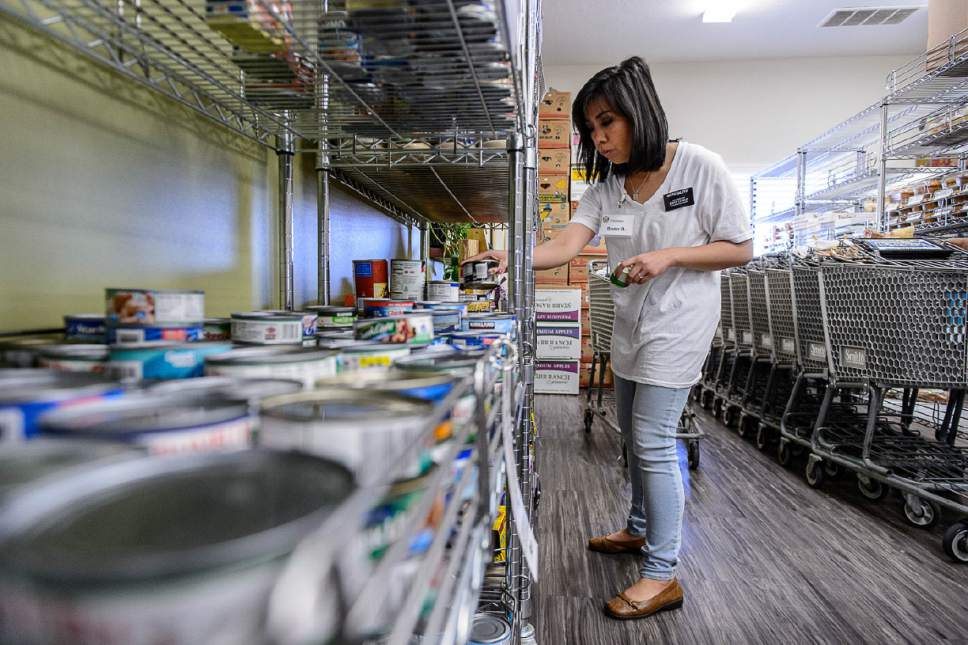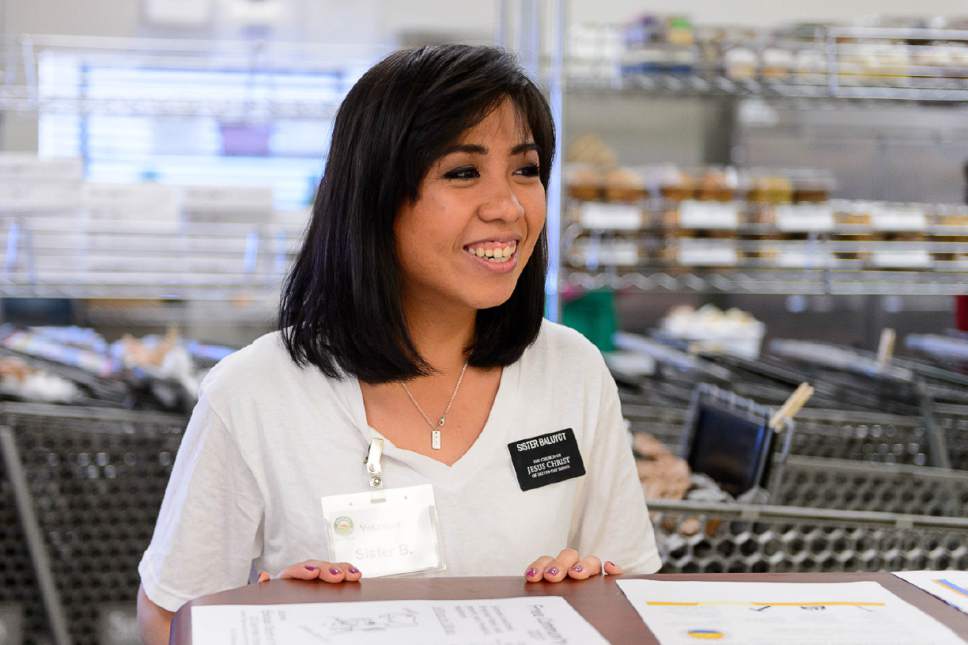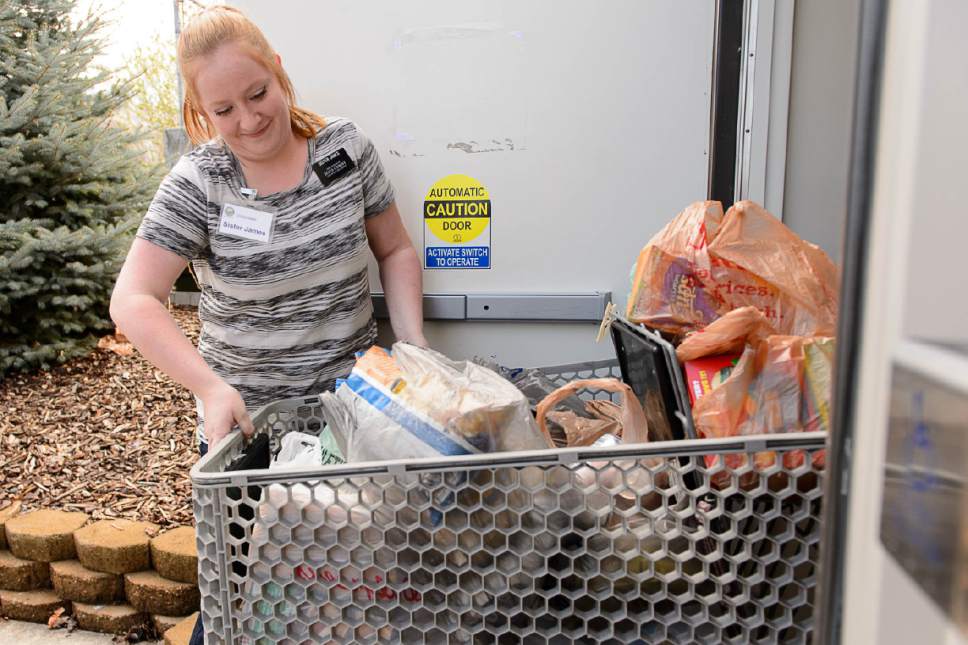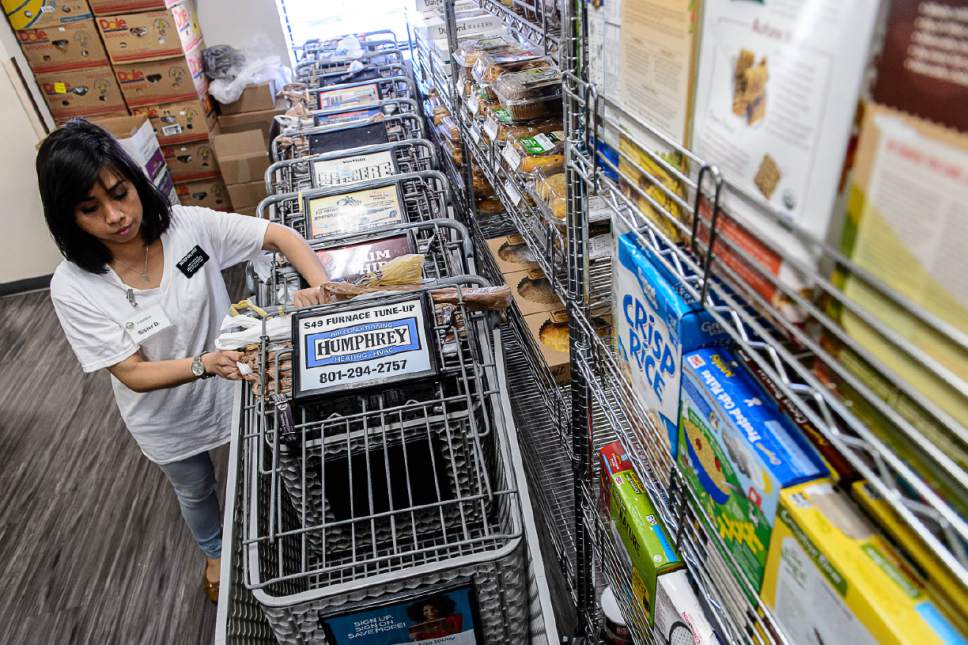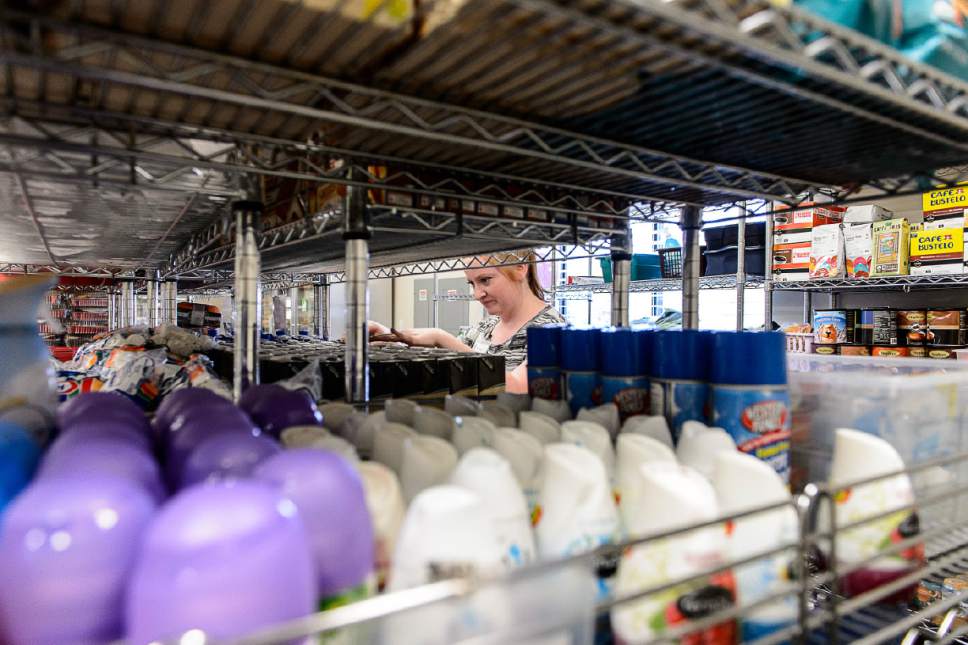This is an archived article that was published on sltrib.com in 2017, and information in the article may be outdated. It is provided only for personal research purposes and may not be reprinted.
Not long ago, Suzanne Miller had a self-described crazy Christian idea.
What if her Ogden church hosted a fresh-cooked weekly meal for the homeless, one in which Styrofoam cups, plastic utensils and paper plates were out and china, silver, glassware and wrinkle-free napkins were in?
The down-and-out would be treated to a restaurant-style dinner at the Episcopal Church of the Good Shepherd without paying a cent, she proposed, and servers from the community would get a chance to break down stereotypes and barriers.
Miller persuaded a friend to join her in the enterprise, gathered her grandma's recipes, sought volunteers and stepped into an unknown future.
The first luncheon, in January 2016, attracted four diners. Within a month, more than three-dozen showed up. A half-year later, 150 were regulars.
Now many of the hungry homeless look forward to this Wednesday feast, Miller says. "They can relax. They feel safe because we treat them with respect."
Organizers never know how many guests to expect, she says. "It's like feeding the 5,000 every week. A miracle."
And the magic keeps happening, thanks partly to an LDS Church website that supplies a steady stream of volunteers. Like Tinder for would-be lovers, JustServe.org matches organizations with idealists eager for ways to give.
Though originally meant simply to list ways for Mormon missionaries to fulfill their four-hours-a-week service requirements, the site has been expanded across religious and geographical lines, reaching from coast to coast and engaging participants of all faiths and no faith.
Despite JustServe being assembled and maintained by Latter-day Saints, neither the website nor Mormon participants — including those name-tag wearing "elders" and "sisters" — are about promoting a particular faith.
In fact, proselytizing is forbidden.
"JustServe has truly helped us to make this not just two Episcopal women," Miller says. "This is a community effort."
That fits precisely with how Mormon authorities envisioned it.
—
Hatching a plan • JustServe was born at high-level meetings of the LDS Church's Missionary Committee based on conversations between Mormon apostle M. Russell Ballard and fellow general authority Richard J. Maynes.
Ballard says the two wanted to guarantee that every missionary had "a great experience serving the Lord." But past routines no longer played in the present.
Few Americans are now home during the day, and fewer still want anyone knocking on their door. During those down times, why not encourage the young evangelizers to turn from convert-courting to charity-helping?
The rules were clear: This was not part of pitching the Mormon gospel. If a person working with them asked questions about their faith, missionaries could answer, but they were not to start the conversation.
About three years ago, the experiment began in San Jose, Calif. Mormon officials found that missionaries involved in service were less likely to have health problems or depression, and relationships between the pairs, known as "companionships," improved.
The idea was sound, Maynes says, but the problem was finding enough places to give.
That's where JustServe comes in.
The Church of Jesus Christ of Latter-day Saints already has a public-affairs representative in every stake (a group of Mormon congregations). That person, along with other members, could look around their areas, the leaders thought, to find service organizations in need of assistance.
The goal was always twofold, Ballard says. "Members and missionaries working side by side in a soup kitchen would be bonding for both sides. [The young people] will never be the same."
LDS headquarters got only positive reports from its pilot programs, which also included Dallas and Denver, the apostle says, so the 15.6 million-member faith began rolling it out across the U.S. and Canada.
Prospective volunteers can go to the JustServe website, plug in their city or ZIP code and, voila, service opportunities with various government, civic, religious and nonprofit groups pop up, complete with links, contacts, descriptions and more.
More than 200 projects were listed Friday evening in and immediately around Salt Lake City. Another 100 were within 10 miles of Provo and nearly three-dozen were in or close to Los Angeles.
Service seekers can sign up to fix bikes, rake lawns, deliver groceries, tutor children and mentor immigrants. Some 520 refugee projects were listed or completed last week.
A donor recently gave 1,000 smoke alarms, and the American Red Cross is looking for 400 volunteers to install them on a Saturday in April.
Only political groups and fundraising efforts are off-limits.
There are fewer opportunities in most cities because it's still being rolled out, Maynes says. "Some pockets are growing strong and other places are just beginning."
It's "pure religion." Ballard adds, "undefiled."
Sadie Howard of Coeur d'Alene, Idaho, has been in Utah for eight months as a full-time Mormon missionary in the Ogden area.
JustServe linked Howard and her various companions with projects, including food banks that used the young sisters to sort cans, stack shelves and hand out goods.
Rather than the usual Mormon missionary attire — conservative skirts for women, white shirts and ties for men — the young people can don jeans and T-shirts for these tasks.
"It helps us be integrated into the community," Howard says. "People see we aren't just kids who knock on their doors. We are helping them."
She adds, enthusiastically: "They love us at the Salvation Army."
Of course, JustServe is not just about missionaries anymore.
—
An expanded embrace • As of this week, more than 240,000 volunteers for all of the U.S. and Canada are registered on the site, while 10,513 service projects are listed, according to JustServe leaders Bill and Sidney Price.
Mormon-dominated Utah, not surprisingly, accounts for a large chunk of the volunteer force, with 37,203 registrants, and nearly 1,300 current projects.
"The church is really serious about this being a resource for communities," Sidney Price says. "We are not looking for publicity for the church. We have no hidden agenda."
That's one reason Utah was one of the last places to get it, she says, coming to the Beehive State in the past year, and its capital six months ago.
Just after Christmas, Jay Eubanks was looking for something he could do with his wife and four children so he turned to JustServe, where he found a listing for the Burrito Project.
It was organized by Rico Brand in downtown Salt Lake City a few years back, and still uses volunteers four days a week to make and distribute rice and bean meals to people living on the street.
On a cold winter's eve back then, the Eubankses picked up their delectable deliveries in two large sacks and began handing out an estimated 150 burritos to bundled-up homeless residents on the south end of The Gateway shopping mall.
"It feels good to do something for others," Eubanks says. "I like for my children to be in the habit of serving."
But JustServe is more than a handy online tool — it is meant to be a potent change agent.
The grand vision, Ballard says, is to make service "second nature" and enlist humans in the business of helping humanity.
Twitter: @religiongal


